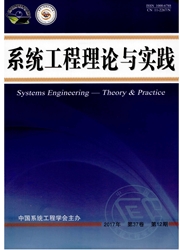

 中文摘要:
中文摘要:
在市场需求不确定情形下,研究了当零售商存在资金约束,而双渠道制造商采用三种不同契约策略时,供应链各主体运作策略和收益.结果指出:当零售商资金不足而制造商为其提供贸易信贷契约时,零售商订货资金不足的困境得到有效解决,零售商和双渠道制造商的利润均高于无任何契约时各主体利润;当零售商资金不足而制造商在其网络渠道提供提前订货折扣契约时,制造商的利润始终高于无任何契约时其所得的利润,而零售商的利润始终不高于无任何契约时其所得的利润;最后,当制造商联合采用两种不同契约时,制造商收益始终高于零售商无资金约束时其所得利润,即供应链中零售商资金约束困境对制造商来说并非始终是有害的,制造商可以通过在双渠道联合采用两种不同契约的方法获得更多的收益.
 英文摘要:
英文摘要:
In the uncertain demand market, three different contract strategies of the dual-channel manu- facturer were researched when the retailer is capital constraint. By solving the model, the optimal order quantity and profit of the two partners were obtained. The results pointed out: when the retailer is capital constraint, the mannfacturer's trade credit (TC) contract can effectively increases the two partners' profit. Furthermore, when the retailer is capital constraint and the manufacturer provides the advance booking discount (ABD) contract in his online channel, the manufacturer's profit always higher than the profit when there is no contract existed, and the retailer's profit always no higher than the profit when there is no contract existed. Finally, when the retailer is capital constraint and the manufacturer jointly uses the two different contracts in the two channels, the manufacturer can always get higher profit than the profit when retailer is no capital constraint.
 同期刊论文项目
同期刊论文项目
 同项目期刊论文
同项目期刊论文
 期刊信息
期刊信息
